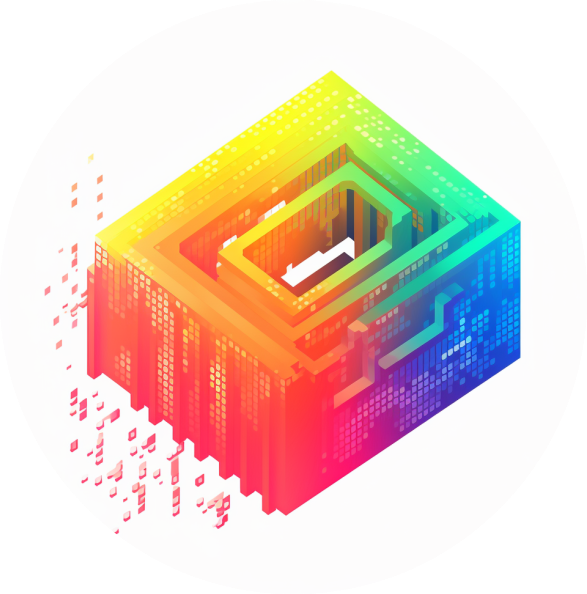The “DevOps and Cloud Engineering Program” offered by Code Platoon is designed to provide an immersive learning experience for individuals who aspire to pursue a career in the tech industry. This comprehensive program equips students with the necessary skills and knowledge to excel in the field of DevOps and cloud engineering. Through a rigorous curriculum and hands-on projects, participants gain practical experience and develop expertise in areas such as cloud computing, automation, and software development. By offering evening and weekend courses, Code Platoon ensures accessibility and flexibility for individuals looking to enhance their technical skills. Graduates of the program have gone on to secure successful careers in the ever-evolving world of technology.
DevOps and Cloud Engineering Program
The DevOps and Cloud Engineering program is a comprehensive training program designed to equip individuals with the skills and knowledge needed to succeed in the fast-paced world of technology. This program combines the principles of DevOps and Cloud Engineering to provide students with a deep understanding of both disciplines.
Overview of DevOps and Cloud Engineering
DevOps is a cultural and professional movement that focuses on the collaboration between software development and IT operations. It aims to improve the speed and efficiency of software delivery by breaking down silos and fostering a culture of continuous integration and continuous delivery. Cloud Engineering, on the other hand, is the practice of designing, implementing, and managing cloud-based systems and applications. It involves the use of cloud computing technologies to deliver scalable and flexible solutions to meet the needs of businesses.
What is DevOps?
DevOps is an approach to software development that emphasizes the collaboration and communication between software developers and IT operations teams. It aims to automate the process of software delivery and infrastructure management to increase the speed and efficiency of software development.

Key Principles of DevOps
The key principles of DevOps include:
- Collaboration and Communication: DevOps encourages collaboration and communication between development and operations teams to foster a culture of shared responsibility.
- Automation: DevOps promotes the use of automation tools and processes to streamline software delivery and infrastructure management.
- Continuous Integration and Continuous Delivery: DevOps advocates for the practice of continuously integrating code changes and delivering software in small increments.
- Monitoring and Feedback: DevOps emphasizes the importance of monitoring and feedback to identify and address issues quickly.
Benefits of DevOps
There are several benefits of implementing DevOps practices, including:
- Increased Collaboration: DevOps promotes collaboration between development and operations teams, resulting in improved efficiency and problem-solving.
- Faster Time to Market: By automating processes and practicing continuous integration and delivery, DevOps enables faster software development and deployment.
- Improved Reliability: DevOps practices like continuous monitoring and feedback help identify and resolve issues promptly, leading to improved reliability and stability of software systems.
- Scalability: DevOps allows for seamless scalability by leveraging cloud computing technologies, enabling businesses to adapt to changing demands quickly.

Introduction to Cloud Engineering
Cloud Engineering is the practice of designing, implementing, and managing cloud-based systems and applications. It involves the use of cloud computing technologies to deliver scalable and flexible solutions to meet the needs of businesses. Cloud Engineering is essential in today’s digital landscape, as businesses increasingly rely on cloud-based infrastructure to power their operations.
Cloud Computing Basics
Cloud computing is the delivery of computing services over the internet, including servers, storage, databases, networking, software, analytics, and intelligence. It offers on-demand access to a pool of shared resources that can be rapidly provisioned and released with minimal management effort.
There are three main types of cloud services:
- Infrastructure as a Service (IaaS): Provides virtualized computing resources over the internet, such as virtual machines, storage, and networks.
- Platform as a Service (PaaS): Offers a platform for developing, running, and managing applications without the need to manage the underlying infrastructure.
- Software as a Service (SaaS): Delivers software applications over the internet on a subscription basis, eliminating the need for installation and maintenance.

Cloud Service Providers
There are several major cloud service providers, including:
- Amazon Web Services (AWS): Offers a wide range of cloud services, including computing power, storage, and databases.
- Microsoft Azure: Provides a comprehensive set of cloud services, including virtual machines, databases, and AI tools.
- Google Cloud Platform (GCP): Offers a suite of cloud services, including computing, storage, and machine learning.
- IBM Cloud: Provides a full range of cloud services, including infrastructure, platform, and software solutions.
Skills and Tools for DevOps and Cloud Engineering
To succeed in the field of DevOps and Cloud Engineering, individuals need to possess a combination of technical skills and knowledge. Some of the essential skills include:
- Proficiency in scripting languages like Python, Ruby, or Shell scripting.
- Knowledge of version control systems like Git.
- Familiarity with containerization technologies like Docker and orchestration tools like Kubernetes.
- Understanding of cloud computing concepts and experience working with cloud service providers.
- Strong problem-solving and analytical skills.
- Excellent communication and collaboration abilities.

Scripting Languages
Scripting languages play a crucial role in DevOps and Cloud Engineering. They enable automation and efficient management of infrastructure and software systems. Some popular scripting languages in this field include:
- Python: Python is a versatile language with a rich set of libraries and frameworks that make it ideal for automation and scripting tasks.
- Ruby: Ruby is known for its simplicity and readability, making it a popular choice for writing automation scripts.
- Shell scripting: Shell scripting, using languages like Bash, is commonly used for automating system administration tasks and running commands on Unix/Linux systems.
In conclusion, the DevOps and Cloud Engineering program is a comprehensive training program that equips individuals with the necessary skills and knowledge to succeed in the fast-paced world of technology. With a deep understanding of DevOps principles, cloud computing basics, and proficiency in scripting languages, graduates of this program are well-prepared to tackle the challenges of the ever-evolving tech industry.

